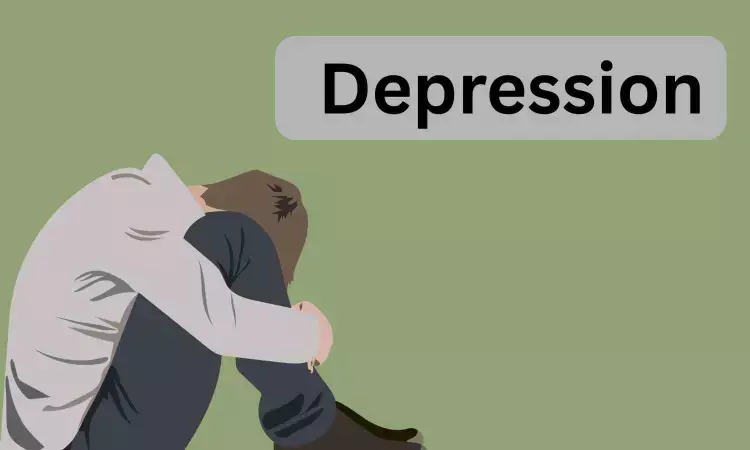- Home
- Medical news & Guidelines
- Anesthesiology
- Cardiology and CTVS
- Critical Care
- Dentistry
- Dermatology
- Diabetes and Endocrinology
- ENT
- Gastroenterology
- Medicine
- Nephrology
- Neurology
- Obstretics-Gynaecology
- Oncology
- Ophthalmology
- Orthopaedics
- Pediatrics-Neonatology
- Psychiatry
- Pulmonology
- Radiology
- Surgery
- Urology
- Laboratory Medicine
- Diet
- Nursing
- Paramedical
- Physiotherapy
- Health news
- Fact Check
- Bone Health Fact Check
- Brain Health Fact Check
- Cancer Related Fact Check
- Child Care Fact Check
- Dental and oral health fact check
- Diabetes and metabolic health fact check
- Diet and Nutrition Fact Check
- Eye and ENT Care Fact Check
- Fitness fact check
- Gut health fact check
- Heart health fact check
- Kidney health fact check
- Medical education fact check
- Men's health fact check
- Respiratory fact check
- Skin and hair care fact check
- Vaccine and Immunization fact check
- Women's health fact check
- AYUSH
- State News
- Andaman and Nicobar Islands
- Andhra Pradesh
- Arunachal Pradesh
- Assam
- Bihar
- Chandigarh
- Chattisgarh
- Dadra and Nagar Haveli
- Daman and Diu
- Delhi
- Goa
- Gujarat
- Haryana
- Himachal Pradesh
- Jammu & Kashmir
- Jharkhand
- Karnataka
- Kerala
- Ladakh
- Lakshadweep
- Madhya Pradesh
- Maharashtra
- Manipur
- Meghalaya
- Mizoram
- Nagaland
- Odisha
- Puducherry
- Punjab
- Rajasthan
- Sikkim
- Tamil Nadu
- Telangana
- Tripura
- Uttar Pradesh
- Uttrakhand
- West Bengal
- Medical Education
- Industry
Psilocybin plus mindfulness shows promise for healthcare worker depression: Study

Frontline healthcare workers struggling with depression after the COVID-19 pandemic experienced significant relief from a treatment combining psilocybin group therapy with mindfulness training, according to a new study from Huntsman Mental Health Institute at University of Utah Health. Doctors and nurses who received this controlled, group psilocybin therapy along with an eight-week Mindfulness Based Stress Reduction program saw far greater improvements than those who only learned mindfulness techniques.
"Depression and burnout have long been serious problems for healthcare workers. When the pandemic only worsened these effects, we felt it was crucial to try something different to understand how we can help this group of individuals who are dedicated to helping others."
Benjamin Lewis, MD Associate professor of psychiatry at University of Utah
The study, which originally appeared in PLOS Medicine, included 25 healthcare workers who worked directly with COVID patients and were battling both depression and burnout. A select group of healthcare workers were administered a single dose of psilocybin in a controlled clinical setting along with 8 weeks of mindfulness training while the other half completed the mindfulness training alone.
For those that were treated with the combination therapy, the group’s depression scores dropped by more than twice as much as the meditation-only group in addition to feeling less emotionally exhausted and more connected to themselves and others.
Nearly half (46%) of healthcare workers who received psilocybin alongside mindfulness techniques were free of depression at two weeks, compared to just 8% who only learned mindfulness practices.
Most psilocybin studies are expensive and hard to scale up as they use two therapists per patient with individual sessions. This study delivered treatment in groups instead, creating an easier path towards scaling and a more accessible option for healthcare workers looking for relief.
Reference:
Benjamin R. Lewis, John Hendrick, Kevin Byrne, Madeleine Odette, Chaorong Wu, Eric L. Garland, Psilocybin-assisted group psychotherapy and mindfulness-based stress reduction for frontline healthcare provider COVID-19-related depression and burnout: A randomized controlled trial, PLOS Medicine, https://doi.org/10.1371/journal.pmed.1004519
Dr Kamal Kant Kohli-MBBS, DTCD- a chest specialist with more than 30 years of practice and a flair for writing clinical articles, Dr Kamal Kant Kohli joined Medical Dialogues as a Chief Editor of Medical News. Besides writing articles, as an editor, he proofreads and verifies all the medical content published on Medical Dialogues including those coming from journals, studies,medical conferences,guidelines etc. Email: drkohli@medicaldialogues.in. Contact no. 011-43720751


